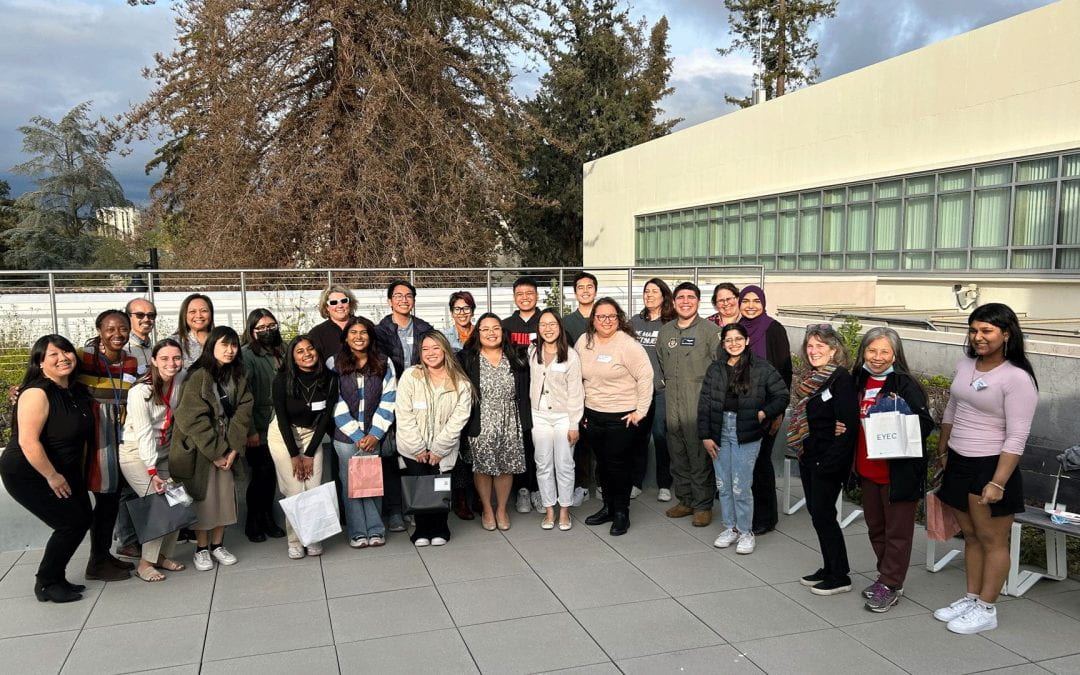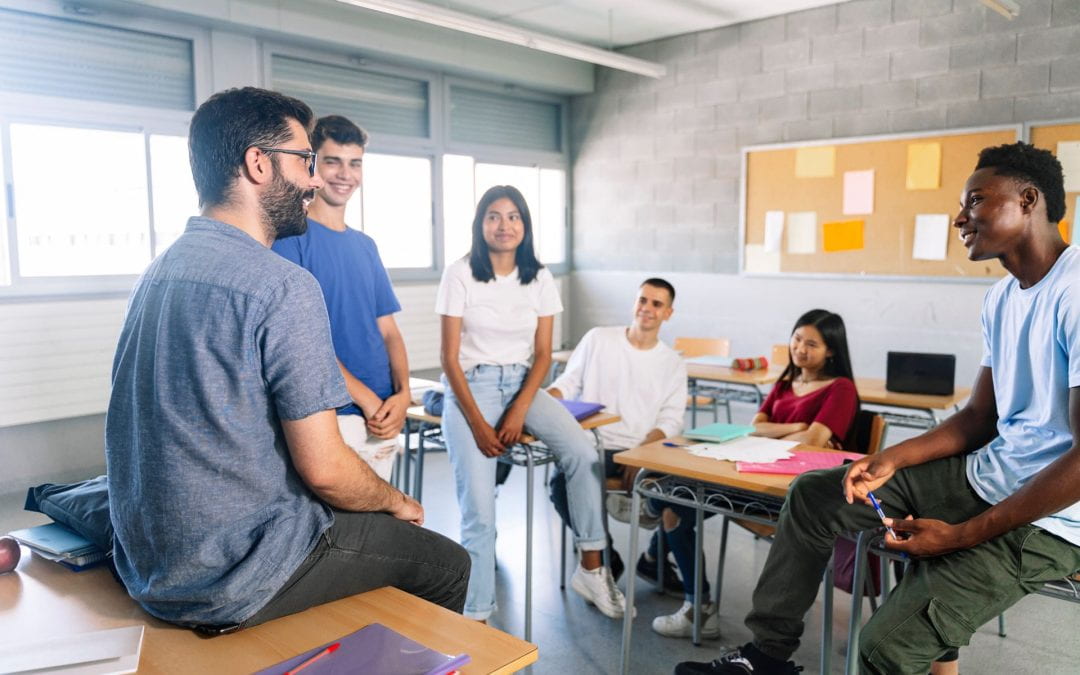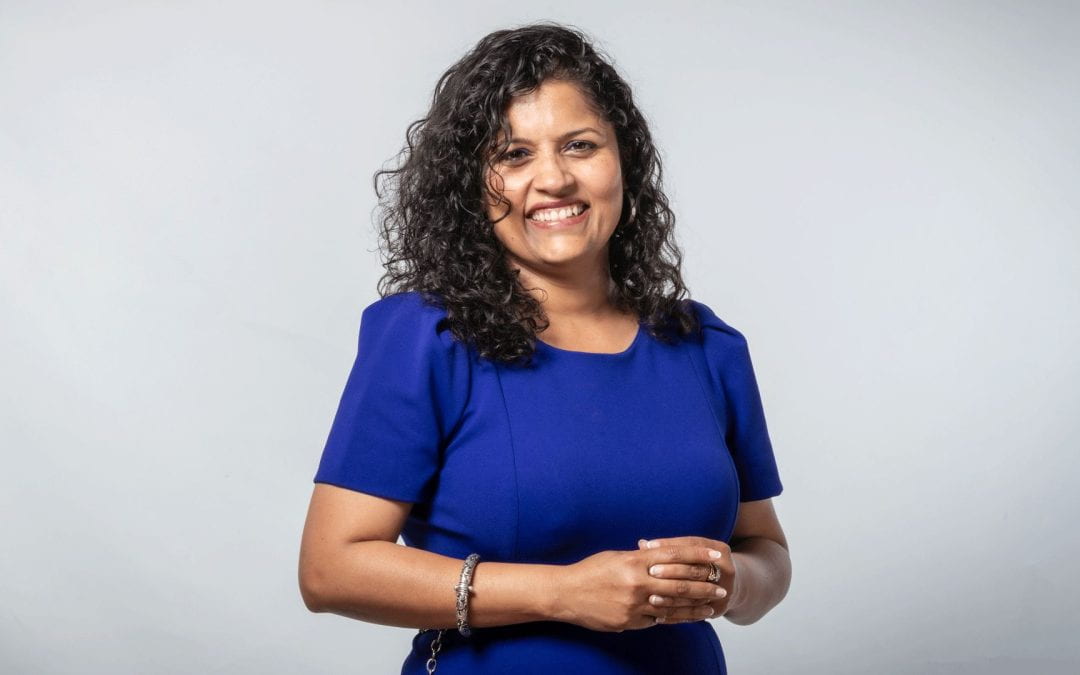Activating Humanities and the Arts into the Future: A Deep Dive with Shannon Miller
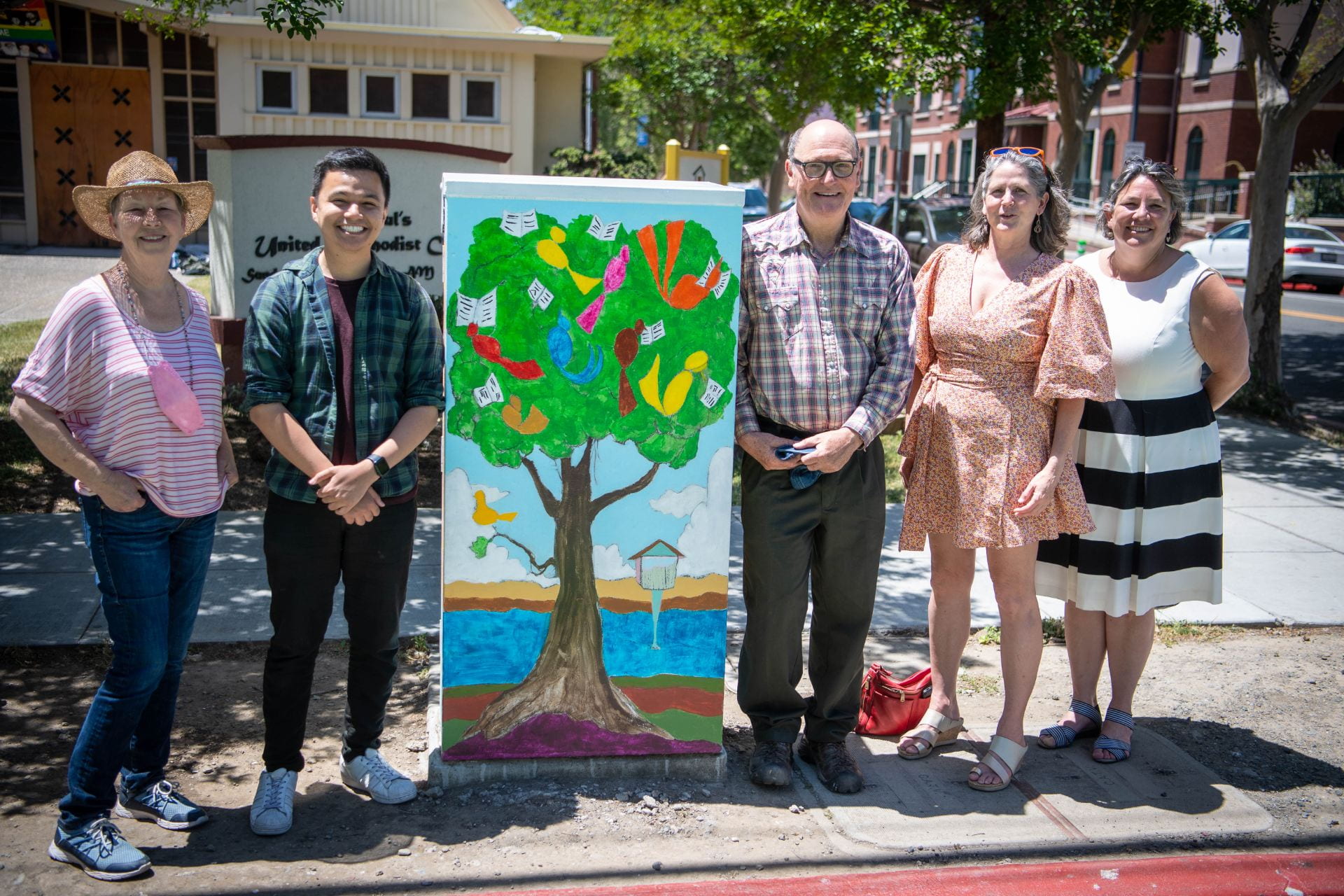
From left to right: South University Neighborhood (SUN) board member Deb Hudson, SUN board member and SJSU alumnus Alan Gouig, artist Mark Fisher, ’24 MFA Pictorial Arts, College of Humanities and the Arts Director of Public Programming Katherine Harris and College of Humanities and the Arts Dean Shannon Miller stand with the mural Fisher painted on the corner of S. 10th and San Salvador Streets in spring 2022. Photo by Robert C. Bain.
At San José State University, Spartans are encouraged to use their artistic talents to engage directly with the broader community, says Shannon Miller, dean of the College of Humanities and the Arts (H&A). Miller and her leadership team view the university as an engine for social mobility designed to produce the next generation of engaged citizens, practicing humanitarians and creators of the arts.
The college serves 4,200 humanities and arts majors and 26,000 undergraduates through a wide range of courses in eight academic departments, two schools, three centers, and one performing arts center and sponsors more than 500 intellectual, cultural, and artistic events, performances, and exhibits annually. We sat down with Miller for a deep dive into the world of humanities and the arts.
The curriculum community theme for the College of Humanities and the Arts for 2023 is “Ready for Re-Entry.” What does this mean, and how do you hope faculty and students respond?
Shannon Miller (SM): The theme for this year’s curricular communities is meant to highlight people’s excitement and anxiety about coming back to school and work [in person]. We wanted to figure out ways to support people to return after the challenges of the pandemic. How do you recover from what we’ve been through? How do you find the strength to manage post-traumatic stress from the disruption and challenges and loss that we’ve survived?
The humanities and the arts are best suited to help people work through that process. A lot of what we’re trying to do with our curricular community is reimagine the world after this really disruptive event. How do we reinvent the notion of democracy? How do we reinvent housing? How do we reinvent our physical environment?
What upcoming performances are you most excited to see?
SM: I’m really excited about “Considering Matthew Shepard,” a two-hour oratorio/opera to be performed by two of San José State’s finest choral ensembles: The Choral Project (Daniel Hughes, artistic director) and the SJSU Choraliers (Jeffrey Benson, director) that reflects upon this horrible event that happened to a young man. I believe the performance will help us reflect upon the necessity of treating our LTBGQ+ colleagues with kindness and care, particularly in the context of a growing number of states that are showing their unwillingness to be open and loving to these members of our community.
The show is scheduled for April 14, and we plan to host pre- or post-show conversations, panel discussions and activities centered around hate crime legislation, LGBTQ+ issues, queer identity and culture.
In late April, the Theatre program is putting on “The Hunchback of Seville,” a play written by Charise Castro Smith and directed by Kinan Valdez. The play is set in the Renaissance and explores interesting issues of power and gender.
Name a common misconception about humanities and the arts. What don’t people know about this college?
In addition to serving as dean of the College of Humanities and the Arts, Miller is an accomplished Renaissance scholar.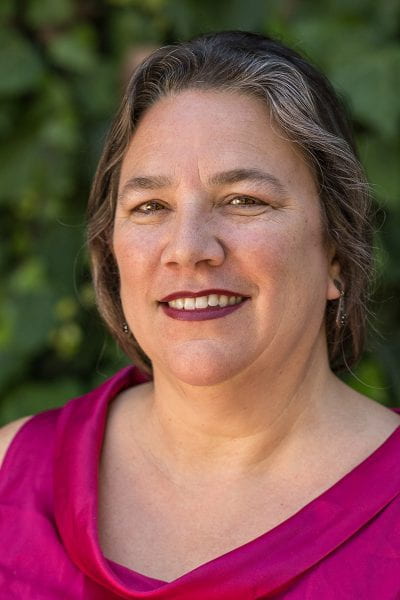
These misconceptions don’t see how embedded the humanities and arts are within culture, and how incredibly topical they are. The humanities and the arts matter every day, not just because they provide ways of understanding the world, but because we are thinking through the ways in which we can help solve problems. And that’s why we believe in H&A “in action.”
What does “H&A in Action” mean?
SM: H&A in Action focuses on the collaborative nature of what’s happening, both in the arts and the humanities. We don’t just sit around reading books and thinking about how these modes of reflection are going to help us face climate change or rethink the pandemic. H&A in Action encourages students to learn by doing, to bring classroom lessons alive and to illustrate the power of our fields in collaboration with the public to engage the most important questions of our time.
What opportunities do students have to get involved in humanities and the arts in 2023?
SM: There are so many opportunities for students to get involved. We have a number of theater performances that students can audition for, as well as musical performances. If people want to experience what’s happening in the Music and Dance programs, we have many different workshops, including some in robots and design.


